'Resilient' Beth-El congregation downsizing from iconic synagogue, but will 'continue on'
FALL RIVER — On a Wednesday after morning prayers, the sanctuary at Temple Beth-El was quiet, peaceful, the 650 seats empty.
Mild winter sunlight streamed in through the synagogue’s stained-glass windows and the dome above. Cantor Shoshana Brown and Rabbi Mark Elber, both in kippot, switched on lights that help illuminate the vast space. It's a place of exquisite beauty, with twin copper-domed towers rising above High Street, with an Italian tile roof, with intricately carved wooden scrollwork above the ark belonging to a bygone era, built with craftsmanship we may never see again. It's also showing its age, as evidenced by water damage on walls and buckets in the vestibule surrounded by scattered bits of fallen plaster.
Elber said a good turnout for their Shabbat services, on a typical week, is about 20 people.
“It’s a very warm community," Elber said. “People have a lot of history together.”
A home for Jews in Portugal: Last Azorean synagogue is saved from ruin, and with it a piece of Portuguese history
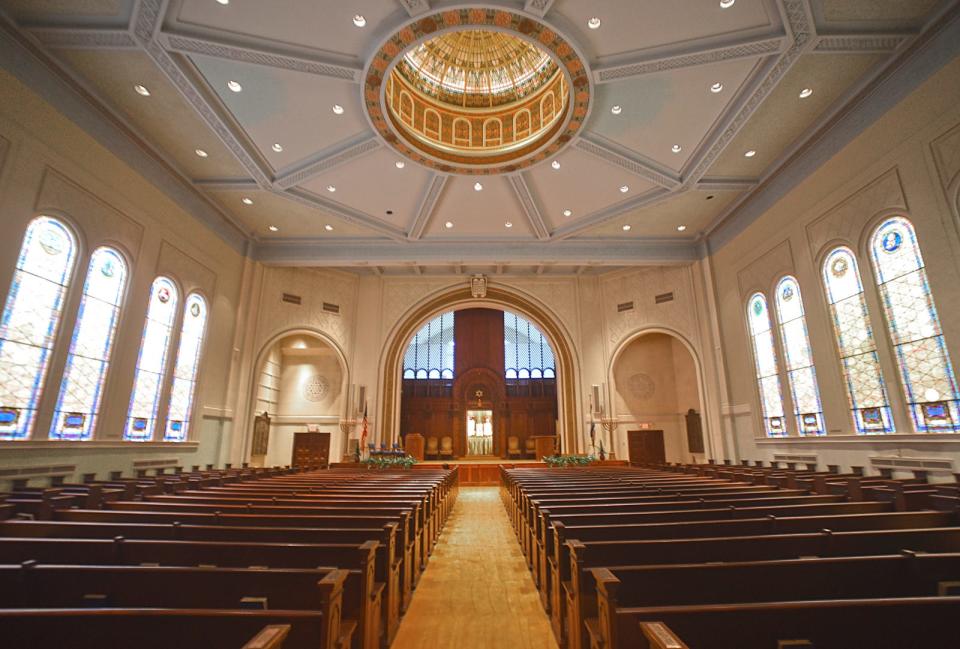
Congregation Beth-El turns a century old this year and has no intention of closing. Jews in Fall River will still have a community, as long as Jews want to meet and pray together. But they're unlikely to meet and pray in this building for much longer. Temple Beth-El, the only synagogue left in Fall River, is a place too big for their needs and far too expensive for the small congregation to maintain.
In a letter to members sent in December, board president Stephen Silverman told congregants that, with membership declining and expenses rising, keeping the building has become increasingly untenable. Elber echoed that statement.
“For the sake of the future of the Jewish community, and for the sake of the future of Temple Beth-El, it needs to be sold," Elber said. A man of deep faith, he added: “I would put in a little P.S. — unless there are donors who want to salvage it.”
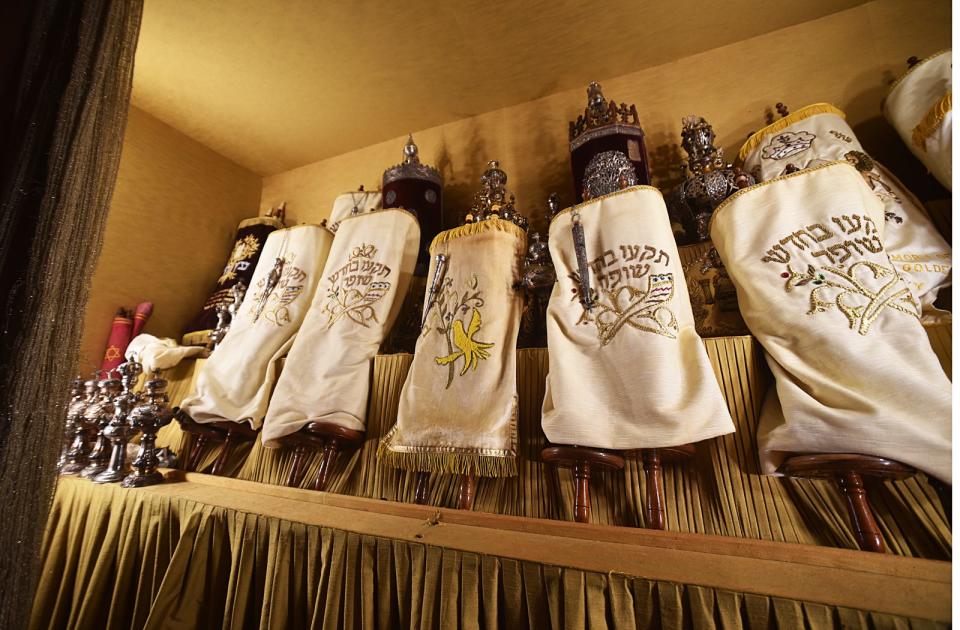
How Beth-El's synagogue rose from the ashes of a devastating fire
The conservative Jewish congregation was founded in 1924 by a group of men who met at the Adaskin Furniture store, at what is now 285 S. Main St. At the time, Fall River had six other synagogues, all orthodox, spread out across the city: Agudath Ben Jacob, Adas Israel, Ahavat Achim, the American Brotherhood of Israel, Beth David and Tiferas Israel.
Beth-El raised money to buy property, with eventually 225 families settling into a converted Methodist church on Bank Street under Rabbi Morton Goldberg. The temple was lost in the Great Fire of 1928, the most devastating blaze the city had ever seen, which wiped out five blocks worth of downtown.
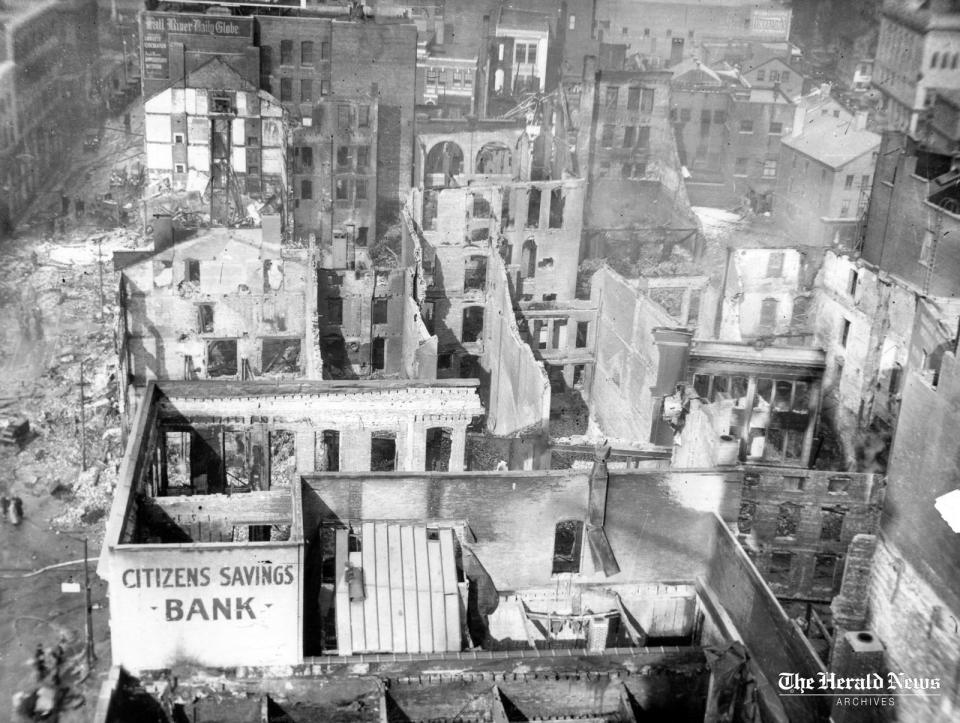
“The spirit of the congregation, however, was not dampened,” wrote Goldberg in the Herald News, and they began a fund drive “entirely from among Jews” with moral support from people of all faiths citywide. In a little less than four months, they were already breaking ground on a new site, on land once owned by Abraham Zais at High and Locust streets.
What they dedicated and opened in September 1929 was, the Herald News wrote at the time, “one of the finest houses of worship in a city that boasts some of the most stately churches in the country.”
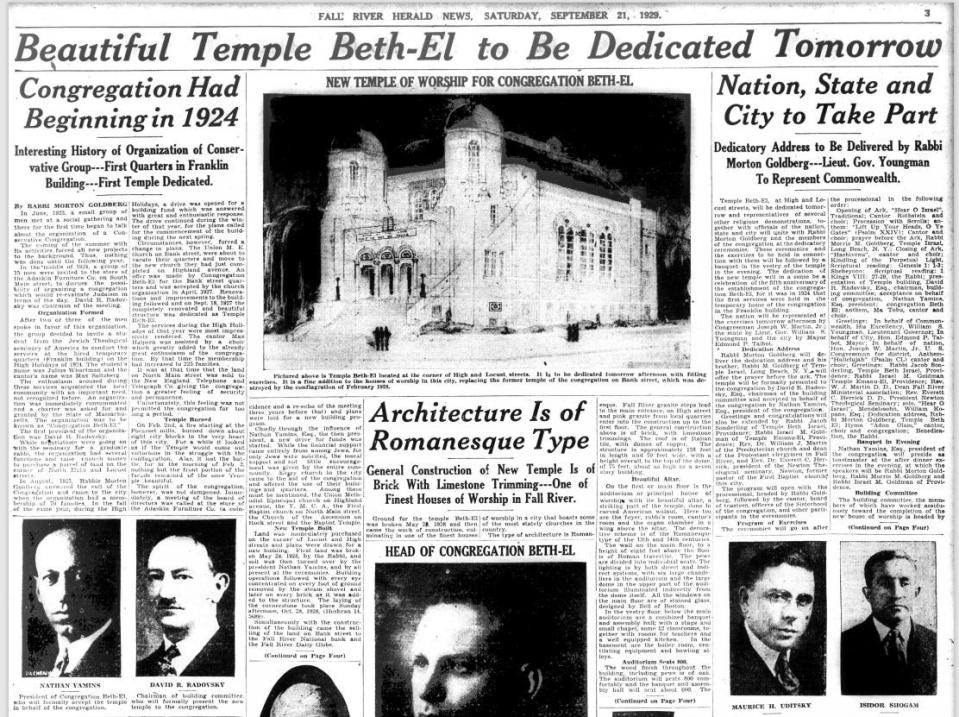
The Romanesque building, constructed of brick and limestone, was designed by architect Samuel Dubitsky with architect Maude Darling Parlin assisting him. “Fall River granite steps lead to the main entrance on High Street and pink granite from local quarries enter into the construction up to the first floor,” the Herald News wrote.
The synagogue was the most illustrious in the city, 75 feet to the top of its dome, filled with stained glass designed by Bell of Boston. Temple Beth-El was designed as both a monument to the almighty and a center of Jewish life, with an auditorium that could hold 800 people, 12 classrooms that could hold 25 to 30 students each, a kitchen, and even a bowling alley.
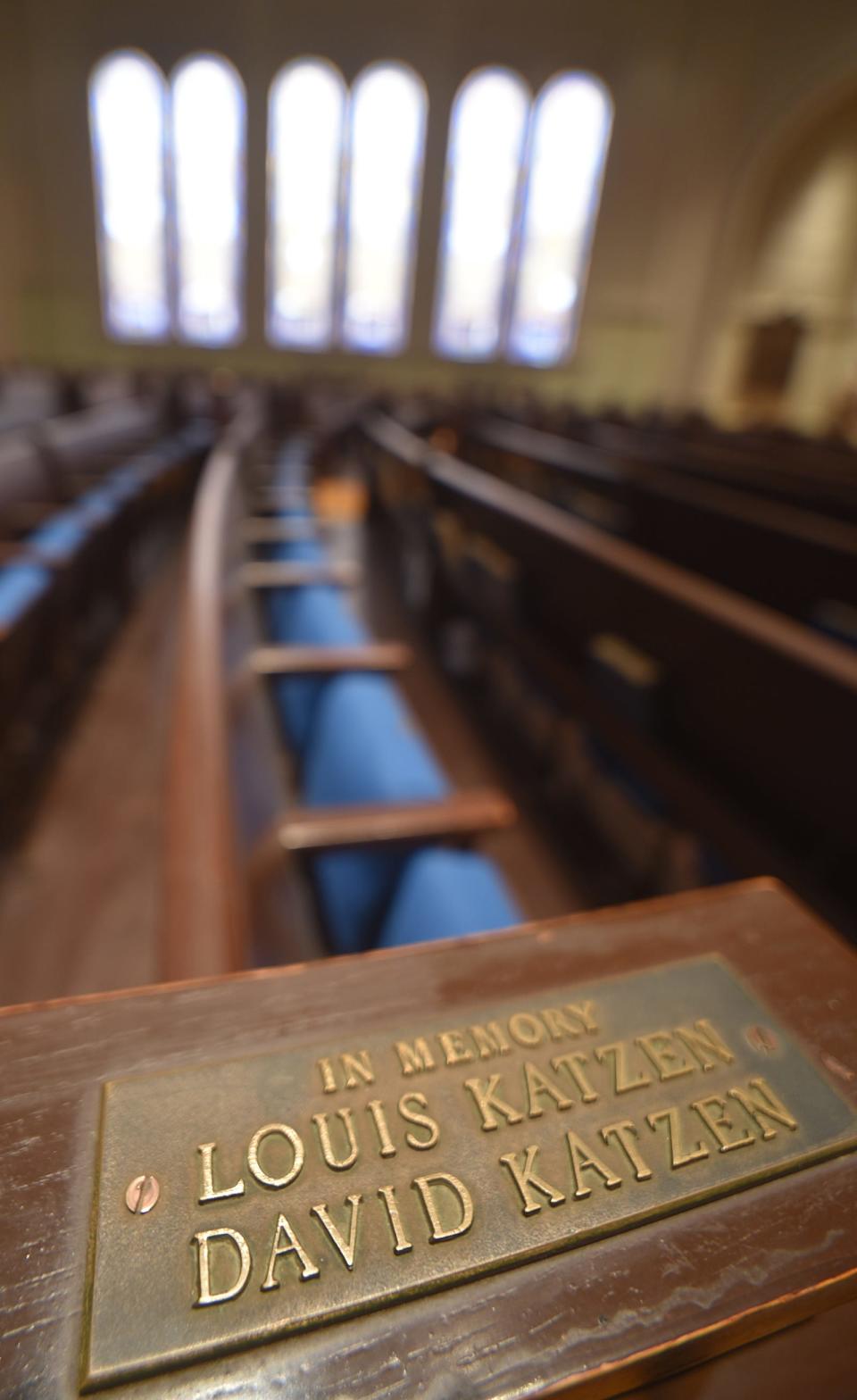
Congregation Beth-El's peak in the 1950s
There was a time when Temple Beth-El’s sanctuary was filled. In 1957, the Herald News wrote that under the leadership of Rabbi Samuel Ruderman, the congregation had swelled to about 1,000 families, with enrollment in its Hebrew and religious schools at over 500.
“A full program of worship, education and recreation for every member of every family ... is provided for at the Temple,” wrote the paper, detailing a library and a museum on the premises, adult education classes, clubs for women, men, couples, young people, a Parent-Teacher Organization and five Scout troops.
Jewish families flourished mid-century, but over time their children moved away. The congregation's numbers haven’t recovered.
It's not a problem unique to Beth-El. In 2012, the orthodox Congregation Adas Israel on Robeson Street sold its building to an evangelical Christian church, leaving Temple Beth El the only synagogue left in the city. And in the 20th century, Fall River was flush with Roman Catholic churches in every neighborhood. In recent years, many closed under the same circumstances facing Beth-El: declining attendance in enormous, ornate buildings that have become too expensive to maintain.
Southcoast Wonders: How many Catholic churches did Fall River have, and where did they go?
Southcoast Wonders: Destroyed, demolished or sold, 5 churches lost to Fall River history
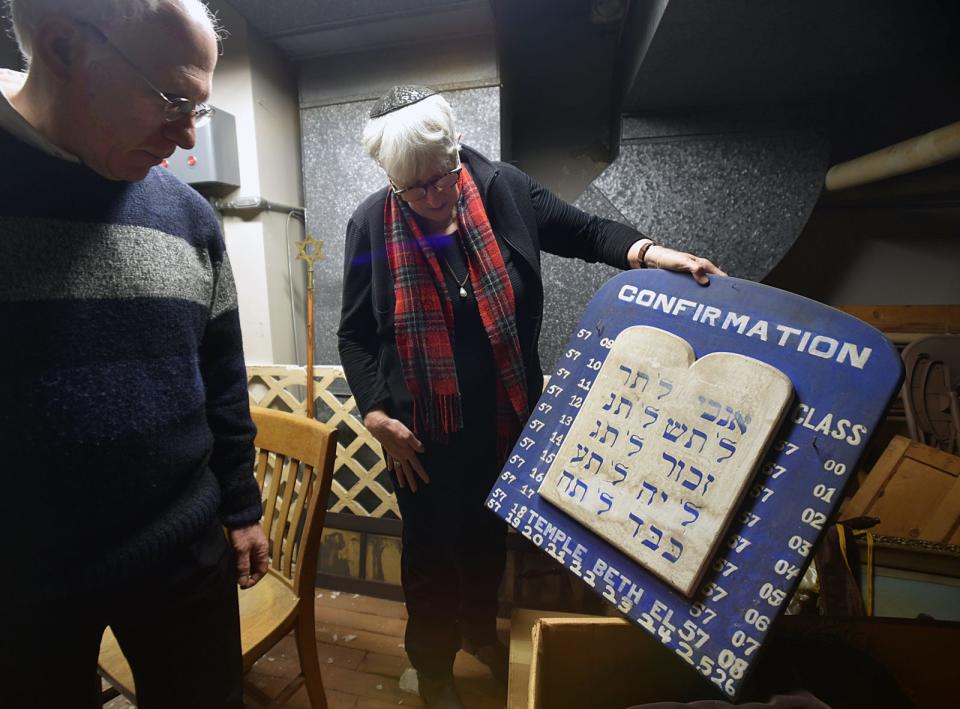
Barney Zeitz was born in Fall River in 1951, and grew up going to Temple Beth-El. He was bar mitzvahed in the building, and attended Hebrew school there until he was 13 under Ruderman.
“I remember as a kid, even up to high school when I was still going a few times a year with my dad, the High Holidays was when everybody goes," Zeitz said. “The sanctuary would be packed. And then the Ziskind auditorium would be packed.”
He was one of the hundreds of people raised at the temple who left Fall River to make his own way in life. An artist, he lives on Martha’s Vineyard, where he periodically attends a temple. His parents remained behind in Fall River, Temple Beth-El members until they died in 2002.
“Almost everyone of my generation lives elsewhere,” Zeitz said. “That’s really the bottom line.”
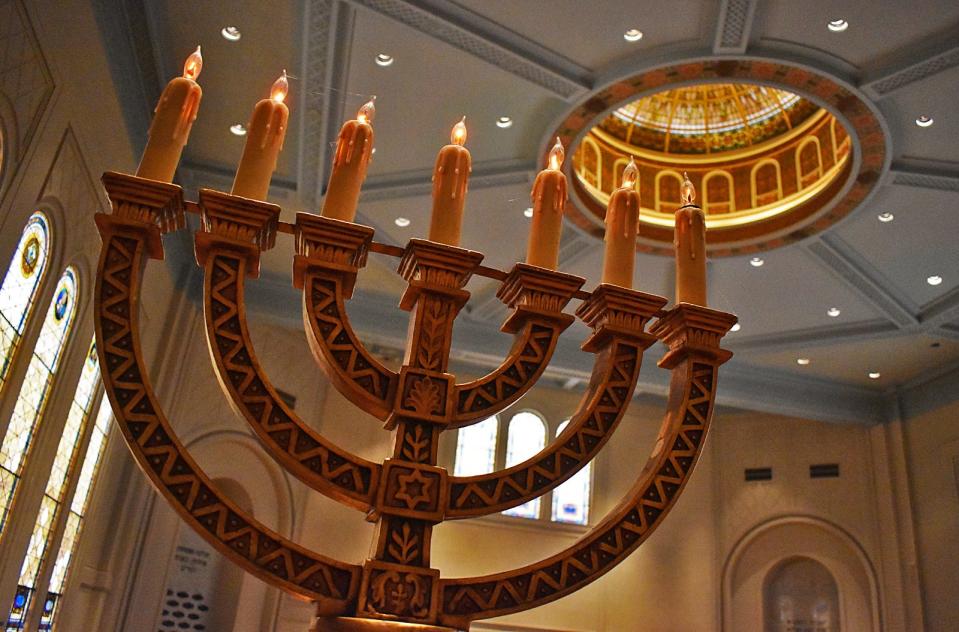
Congregation Beth-El's size doesn't suit the building
The congregation remains intact — much smaller these days, but it still fulfills its mission.
Elber and Brown became the congregation’s spiritual leaders in 2013 and revived its Hebrew school, “which had been dormant for 10 years,” Elber said. He teaches three levels of classes.
Brown said when they came to Fall River, the congregation had a few younger people, “but they all had their bar and bat mitzvahs, and have gone on.”
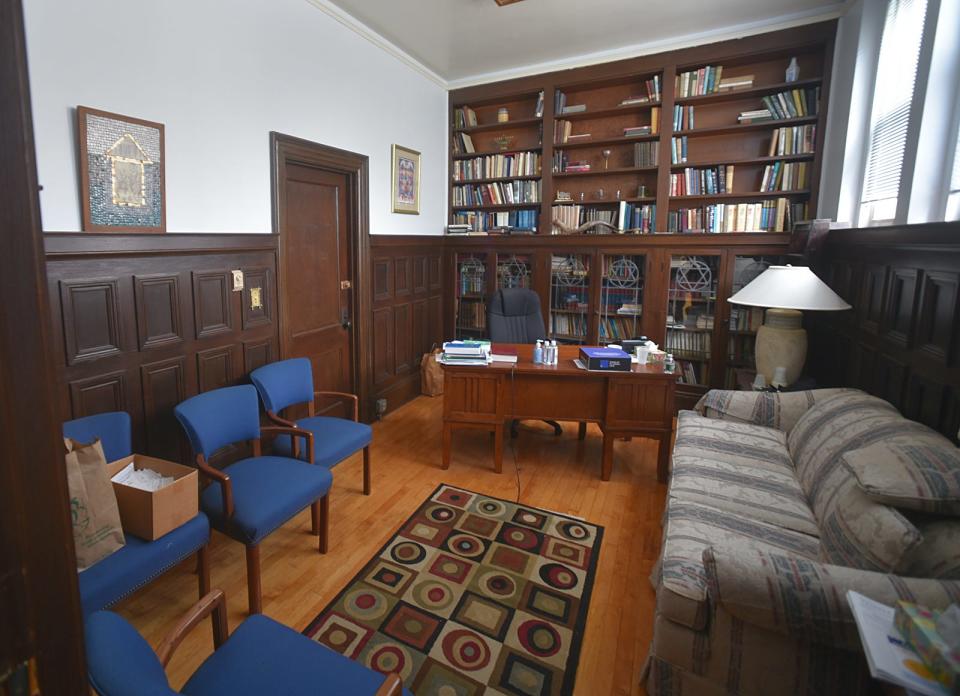
Elber holds adult education classes, too. He and Brown lead four services a week, not just for those in person but for people who join via video conference, which has been a feature since COVID — even less need for a physical space.
“People join for different things,” Elber said. “Some people are in study groups and don’t come necessarily to a prayer service ... but they want to study on a regular basis. People are active in different ways.”
Ken Littman also grew up at Temple Beth-El in the 1950s and ‘60s, attending Hebrew school there. Like many, he moved out of the city, but close enough to be within driving distance. Unlike others, he rejoined the temple in the 1990s. He said there were other congregations he could have joined, but he felt close to Beth-El and remembered his time there fondly.
He is a congregation board member now, and said he understands why the group must downsize to a smaller synagogue.
"They have plumbing issues, they have heating issues, like you would have in any old building," Littman said. “The congregation generally doesn’t see in the basement when pipes burst and they have to fix the boiler and other things.”
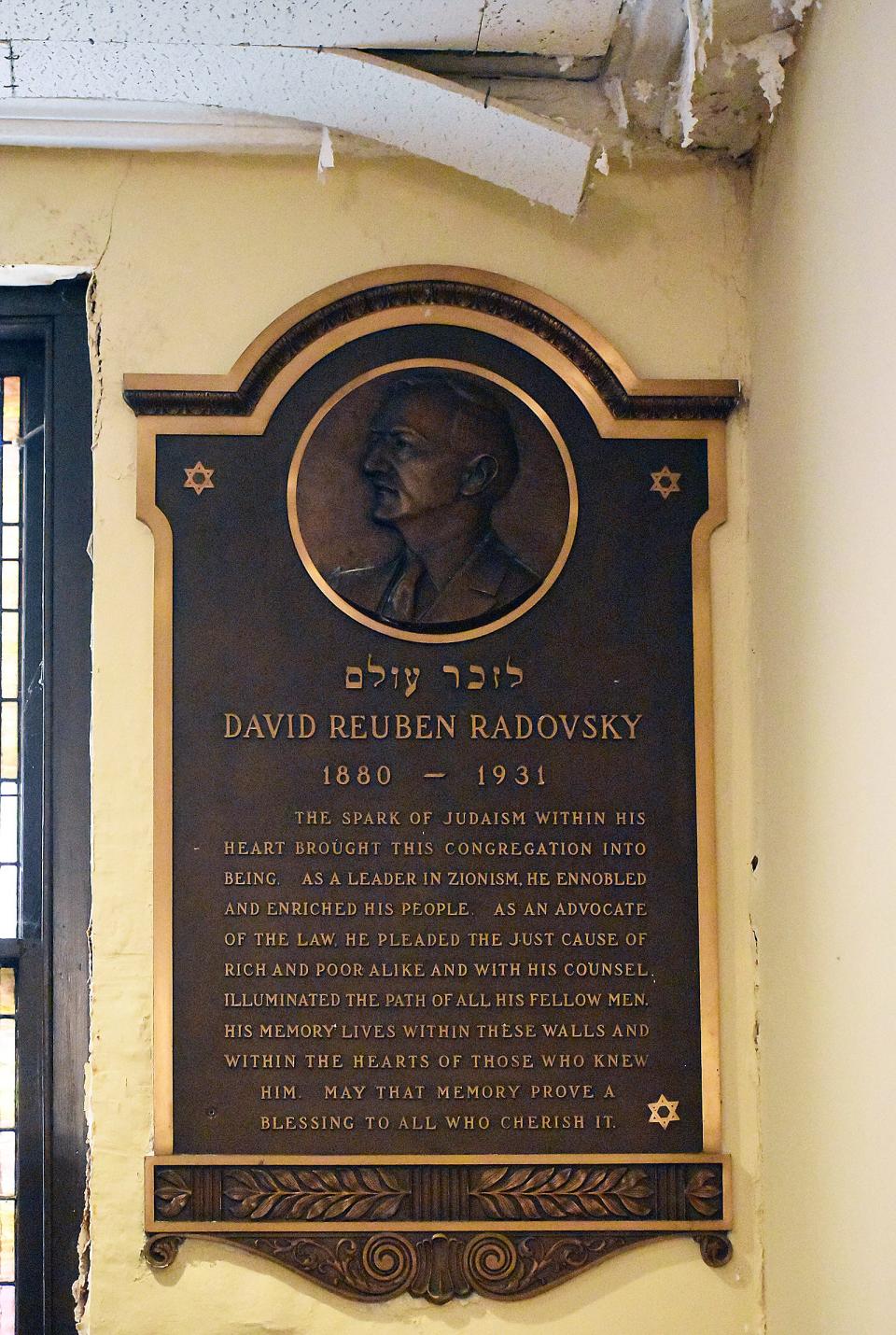
General maintenance alone for a building this size requires a lot of money. There are larger expenses. Roof repairs need to be done — buckets in the vestibule and in a hallway are catching leaks, and Littman described a trip into the building’s towers, which he said were crumbling inside, that left him saddened.
The temple building is on Fall River's list of significant structures, and is listed with the state's Historical Commission.
Repairs, he said, would be “well beyond what the assets of the temple are, even if we get help from other sources.”
Littman said the vast majority of those surveyed in the congregation have agreed that the expenses, combined with the group’s size and age, have led them to understand that “we can go to a place that’s more appropriate for a community group of this size.
“Of course it could grow,” he said, “but we're at a point where we’re nowhere near when I was in Hebrew school and there were 500 families.”
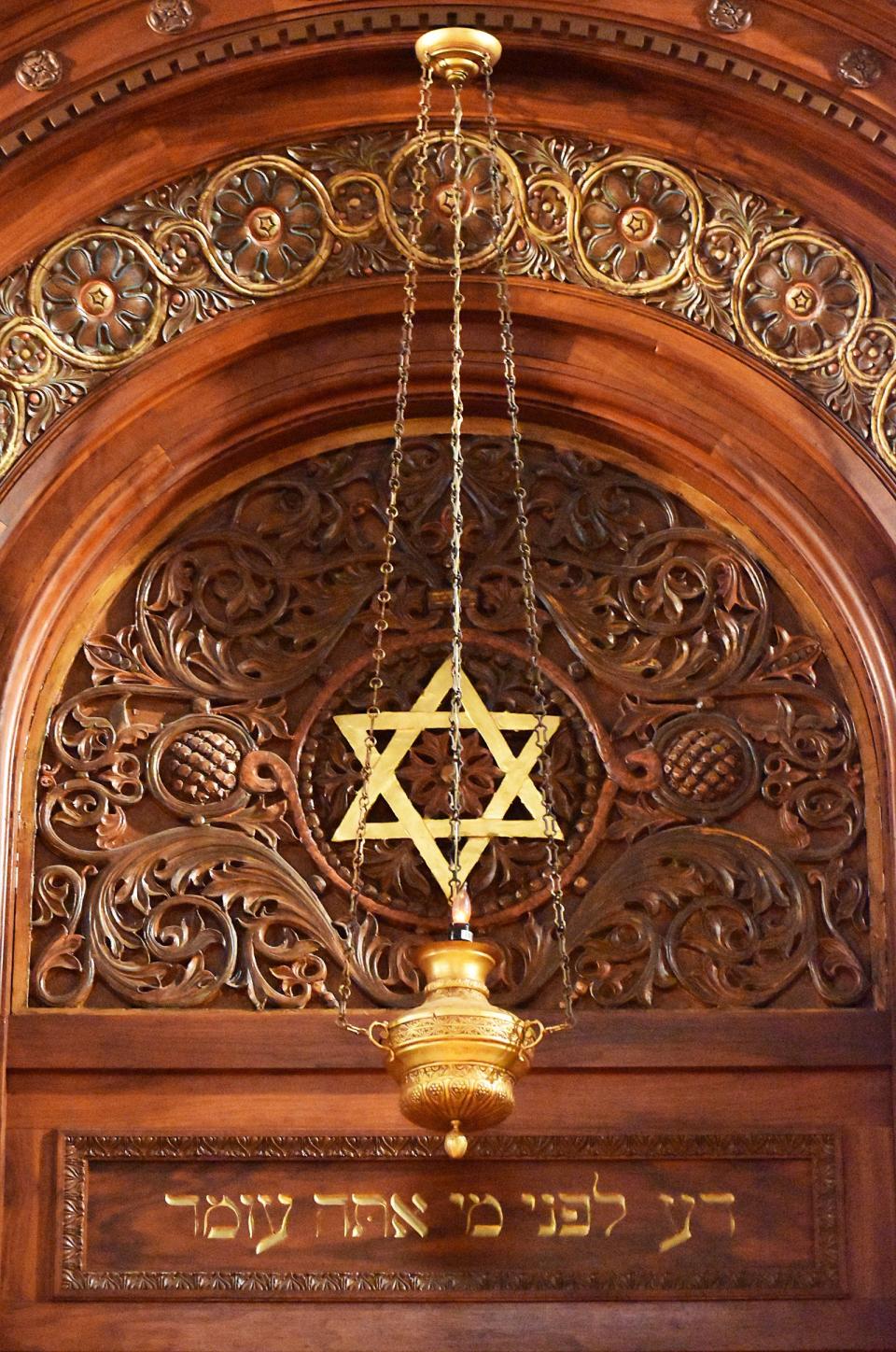
Beth-El board member: 'It'll continue on'
As a reporter left the temple building, a woman stood waiting outside by the door. She was there to take Hebrew lessons. Brown welcomed her inside to meet with the rabbi.
Elber said he’s long held out hope that South Coast Rail might make Fall River a bedroom community for Boston, bringing Jews from other parts of the state to live and worship here, and he still hopes for this kind of growth.
“The building is symbolic of the presence of the Jewish community here,” Elber said. “It's such a beautiful structure, and generations have gone to this same building. ... All of these life cycle events in the lives of the congregation have all occurred here.”
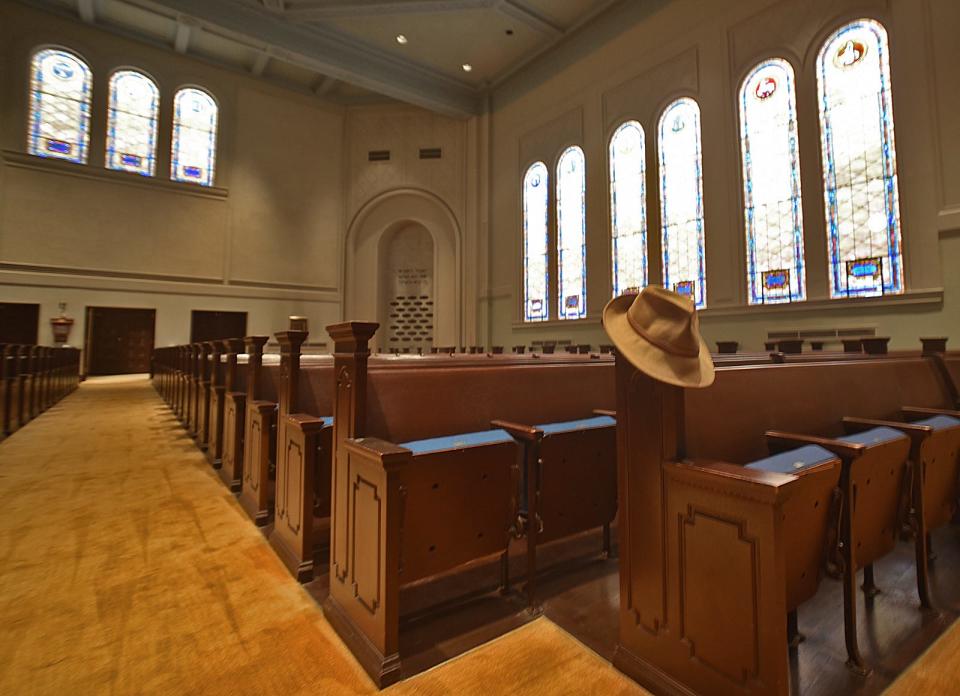
But he and everyone else at Beth-El understand that a building is a place, but a congregation is its people.
“It’s important to have a meeting place for us,” Littman said. “Whether it’s in a building that seats 700 people in a sanctuary or in a building that seats under 100, we’re going to be somewhere where the community can get together and be able to worship and feel comfortable.
“It’s a resilient community. They’re not just going to pack their bags and go away. It'll continue on — small, but it’ll continue on."
Dan Medeiros can be reached at [email protected]. Support local journalism by purchasing a digital or print subscription to The Herald News today.
This article originally appeared on The Herald News: Why Fall River's Beth-El congregation is selling iconic Jewish temple
